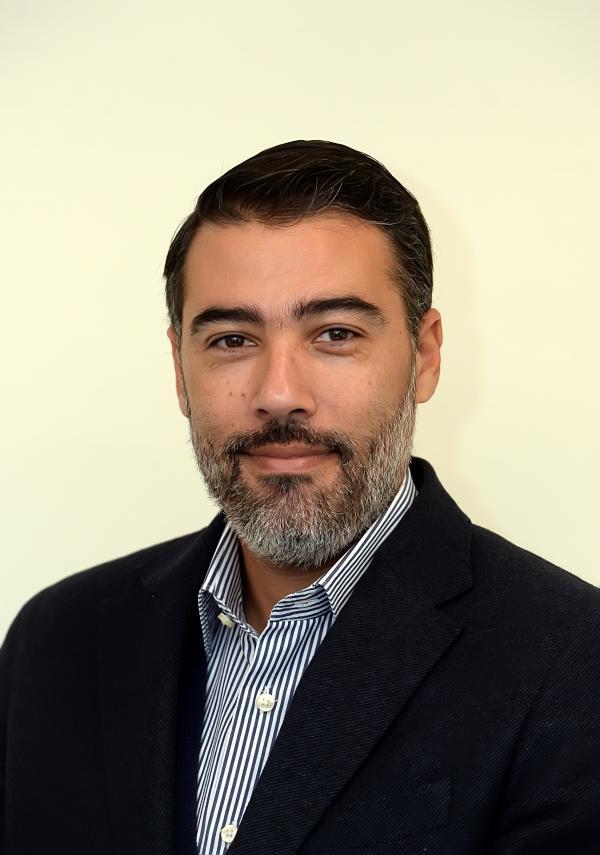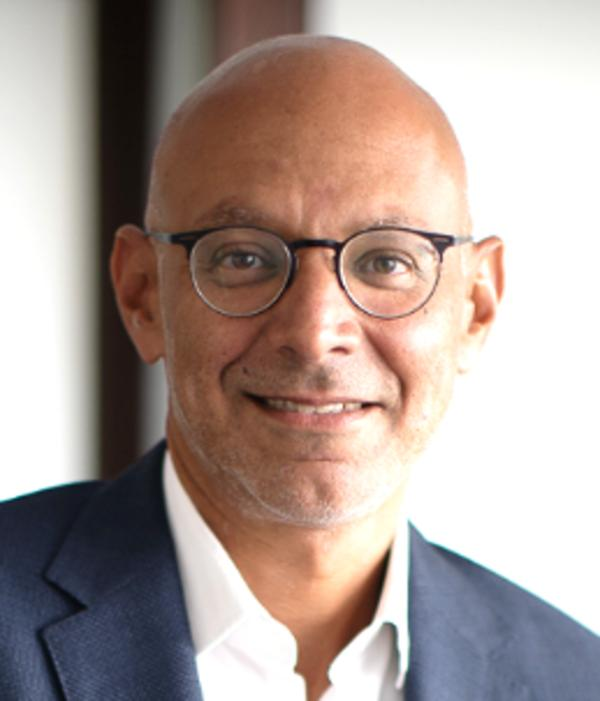Egypt private equity fled after the 2011 revolution. Now, with the backing of international financial institutions, a new generation of investment firms is helping promising companies to expand and professionalise.

Ahmed El-Guindy
Ahmed El Guindy worked for one of the largest conglomerates in Egypt and the Middle East after graduation. He rose through the ranks to become general manager of a subsidiary manufacturing curtain walls, windows and doors made of aluminium and glass. But Ahmed had even bigger plans. “I always had the dream of working somewhere where I could actually have a stake as a partner and shareholder,” he says. “I didn’t want to be just a regular employee or manager my whole life.”
In 2015, he spotted his chance. The siblings who inherited control of a family-owned company, AluNile, were looking to move on. “I believed I could grow this company and take it to the next level, but I needed a strong financial partner, and preferably one with experience in managing and growing an industrial company.”
That’s when he came across Ezdehar, an Egyptian private equity firm backed by the European Investment Bank. “When I came up with the plan, I met with seven or eight different investors, but the chemistry with Ezdehar was different,” says Ahmed, now AluNile’s chief executive. “We clicked from the first moment and I felt we understood each other.”
Private equity 2.0
Ezdehar was the first of a new generation of independent private equity firms to emerge in Egypt after the revolution of 2011, which all but eradicated the local private equity industry. Founded in 2014, the company wanted to have a positive impact on the local business environment and to contribute to the re-establishment of private equity in the region.
“The private equity industry in Egypt was transforming,” says Emad Barsoum a founding partner at Ezdehar. “The competitive landscape was wide open and, after a period of upheaval, Egypt was taking transformative steps towards improving its economic environment with reforms, investment in infrastructure and energy, and the creation of a more investor-friendly legal framework.”
Attracting investors to the firm’s first fund, however, was challenging. “Few investors saw the transformation underway in Egypt and most of the old players had not done well,” says Barsoum. “We were also a new firm with no institutional track record.”

Emad Barsoum
One of the first investors to work with Ezdehar on its fund was the European Investment Bank. “At the time, very few international investors were considering investing in Egypt,” says Marius Chirila, an equity investment officer at the European Investment Bank. “Even many development finance institutions had restrictions on investing in Egypt, because of the country risk. The EIB was the first institutional investor to work with Ezdehar on shaping its proposal, essentially contributing to the re-emergence of the Egyptian private equity industry. Since then, Ezdehar’s progress has been remarkable. The team has had a significant impact on the economy as a whole and in particular on the growth and institutionalisation of local small and medium-sized enterprises in line with international standards.”
The European Investment Bank invested capital from the Risk Capital Facility for the Southern Neighbourhood, which is set up by the European Commission and the EIB, in Ezdehar’s inaugural fund. The European Bank for Reconstruction and Development, the Dutch entrepreneurial development bank FMO, and the UK development financial institution CDC are also investors in Ezdehar’s inaugural fund.
Second fund raising for Egypt private equity
Thanks to its success, Ezdehar is now in the process of raising a second investment fund. The firm is seeking to reach a fund size of over $100 million, beyond the $84 million in its first fund.
The European Investment Bank has been actively involved in private equity and venture capital across emerging markets since the early 1990s and played a key role in the establishment of the first private equity fund managers in several countries. Private equity can play a unique and important role in emerging markets where debt financing and capital markets are still underdeveloped, especially for small and medium-sized companies. In addition to capital, private equity firms also provide expertise to help companies develop, institutionalise, and adopt best practices in terms of environmental, social and governance matters.
“Private equity 2.0 in Egypt has really been driven by international financial institutions. Without them, it never would have happened. They really helped to restart the whole industry,” says Ezdehar’s Barsoum.
Prosperity and Egypt private equity
Like Ahmed El Guindy, Ezdehar’s founders also had a dream.
“Private equity is a means to an end, but when my partners and I were discussing things at the beginning we talked a lot about our dreams and goals,” recalls Barsoum. “Egypt is a big country with 100 million people and a strategic location, but it doesn’t have many corporate exporters or regional champions. Our dream is to see a good number of companies in Egypt reach the level of governance and professionalism to become strong companies that operate at the level of multinationals and can compete internationally.
“A well-developed private equity sector could help to transform a hundred companies and many more indirectly by raising standards.”
Karim Ragab, Ezdehar’s operating director, explains that “Ezdehar means prosperity in Arabic. We believe that by professionalising companies and making them better at what they do, we can help build prosperity in Egypt and the region. Our name is also our core purpose as a firm.”
Egypt private equity investment strategy
Raising the level of environmental, social and corporate governance standards in the companies they invest in is an important part of Ezdehar’s investment strategy.

Karim Ragab
“Introducing more formal and professional corporate governance and management structures has clear benefits that companies tend to appreciate quite early on,” says Ragab. “There are still companies that see their businesses as mainly about capturing economic value. For example, they try to limit salaries or benefits for employees. But the companies we have worked with manage to reward fairly their employees as well provide the budget for ensuring high ESG standards and still create more value for themselves. This proves that good compliance and good corporate citizenship are good for them too.”
Dreams come true
When Ahmed took the reins at AluNile with Ezdehar’s backing, one of the first things he did was to reorganise the company’s internal management, which like many family-owned companies had been tightly controlled by a single person. He set out reporting lines, introduced new departments such as human resources, cost control and supply-chain management, and implemented a clear structure for employee grades, salaries and bonuses.
The company is reaping the benefits. Over the last five years, sales have risen more than three-fold and the number of employees has increased from 700 to over 1 000.
“We are still expanding and have very ambitious plans,” says Ahmed.
His plans include a new factory on 20 000 square meters of land near Sadat City to expand the company’s production of aluminium frames and plans are underway to start exporting.
“Our goal is not just to be big in Egypt,” he says, “but to be a regional player too.”
